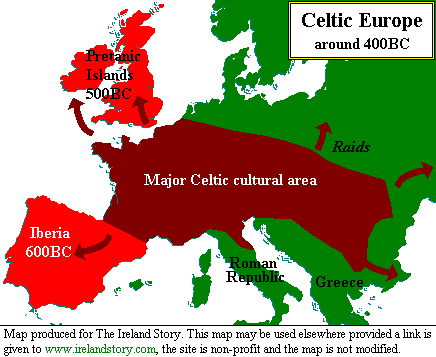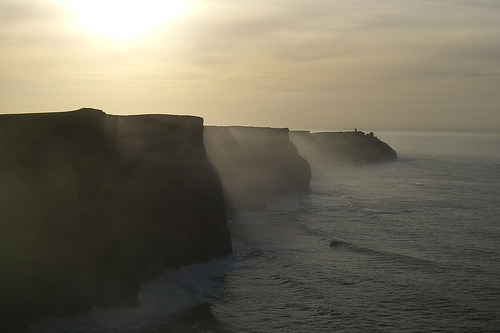Although many cultures adorn the dead with material comforts like flowers, coffins, and well-pressed suits, these objects are generally meant to benefit those in grief. However, for the Celts, a society that spread across Europe and the British Isles from the Iron Age until the late Roman Empire, these items were necessities that helped the recently lost move on to a better life after death.
To prepare the dead for this journey, burials included human and animal sacrifices to appease the gods, as well as the interment of an assortment of goods such as utensils, coins, chariots, weapons and armor. Dressed in the latter, the deceased was often buried in the direction of his enemies so that he would be prepared to greet them. In this way, Celtic burial sites left behind the remains of a celebration as much as a funeral, and a preparation for life after death as much as a farewell to earthly life.
These funeral practices embodied many Celtic beliefs. The druids (spiritual guides of the Celts) envisioned a bodily life after death that took place in an “otherworld,” which was a better, more pleasurable, more blissful version of life on earth. The Celts were among the masters of dream and myth, similar to (though allegedly much more violent than) the Lost Boys from Neverland. In the “otherworld” they found a wondrous dreamworld that did not spoil itself, as in Christian theology, with the looming shadow of moral retribution. It seems the Celts were free from both fear of sin and fear of death.
Their afterlife was anything but ghostly. Whereas many other religions conceive of a split between body and soul, so that after death the latter becomes a shade or spectral essence, in Celtic belief the two remain in tact and are even enhanced and made more godly. Not only does the Celt gain admission to a rich and vibrant dreamworld—he also takes with him an exalted version of his flesh through which he enjoys the sensual pleasures of paradise.
However, death itself for the Celts was blurry and without the finality we so often ascribe to it. At any minute the Celt might come back to life in his full, corporeal self. One folktale even relates how a man came back from the grave to sire a child by his widow. Some scholars see these beliefs as a cultural innocence by which Celts were largely unaware of the body’s natural decay. I would rather appreciate their vivid approach towards death, their inseparable union between soul and body and their volatile vision of death, in which the dead could rise at any time to alter the world of those still caught in our imperfect earthly life.
More on Celtic tradition from SevenPonds:
- Memorial Song: “Angel” by The Corrs
- Halloween’s Deathly History
- Krista Strader, musician who plays the Celtic harp

 Celtic Dreamlands and Burial Rites
Celtic Dreamlands and Burial Rites





 “Making Mobiles” by Karolina Merska
“Making Mobiles” by Karolina Merska
 “Hands Up to the Sky” by Michael Franti & Spearhead
“Hands Up to the Sky” by Michael Franti & Spearhead
 Coping With Election Grief
Coping With Election Grief














